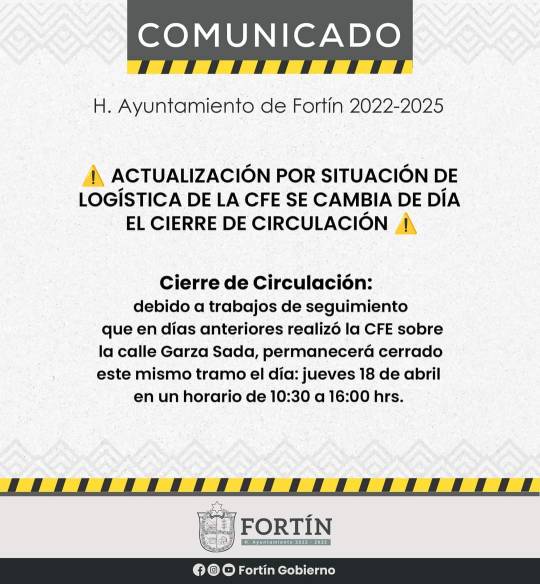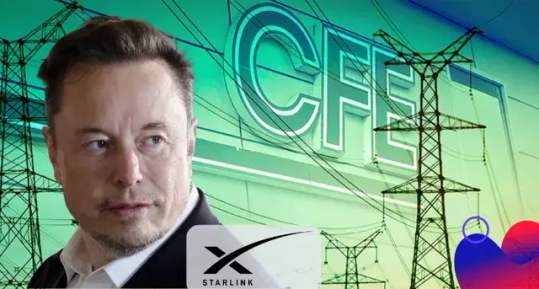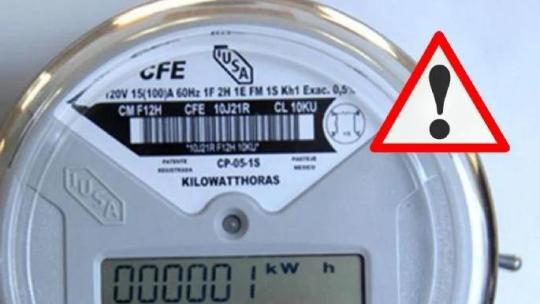#cfe
Text
On today’s episode of World War III is Just Around the Corner:
“Although the buildup was largely overlooked by Western media at the time—and has since been forgotten amid the outbreak of war between Israel and Hamas—it is part of an alarming development in the Balkans. The immediate pretext for the Serbian mobilization was months of unrest between Kosovo and Serbia, which have maintained a fragile peace ever since a NATO bombing campaign helped Kosovo win de facto independence from Belgrade in the 1998–99 war. In May, Serbia placed its troops on combat alert after ethnic Serbs living in Kosovo clashed with Kosovo police. And then in September, just before the recent mobilization at the border, 30 heavily armed ethnic Serbs attacked a police patrol in Kosovo, leaving four people dead.
But there are many indications that these incidents go beyond the familiar tensions that persisted in past years. These incidents also show the growing threat that Russia, Serbia’s partner, is posing to the region. In 2022, for example, Serbian Prime Minister Ana Brnabic said that Kosovo and Serbia were “on the brink of armed conflict.” And Moscow—which does not recognize Kosovo’s independence—fanned the flames, using information operations to fuel Kosovar-Serbian distrust and to spread hawkish messages that polarize the region along ethnic and religious lines. Russia has also armed Serbia while increasing Serbia’s energy dependence on its companies by providing gas and oil at a sharp discount. Moscow has promised Belgrade that it will block Kosovo from becoming a UN member state. “A big explosion is brewing in the center of Europe,” Russian Foreign Minister Sergei Lavrov said in May. It might have been a boast.
(…)
It is time, then, for NATO to decisively put an end to Vucic’s Kremlin-enabled sideshow. The United States and Europe must make it clear to Belgrade and Moscow that they will react strongly, and harshly, to future Balkan provocations. They must strengthen NATO’s presence in the region and establish credible redlines that Serbia cannot cross without provoking a military confrontation with NATO forces. And they must sanction Belgrade if Serbia’s leaders do not move away from Moscow and de-escalate tensions.
(…)
For Putin, this opening has been a boon. Russia views the Balkans as Europe’s soft underbelly, and Moscow believes that Serbia is its most vulnerable spot. His goal is to turn Moscow into the Balkans’ only reliable conflict negotiator—giving the Kremlin leverage over Western powers. After all, if peace in the Balkans depends on Putin, NATO officials might have to make concessions to Moscow if they want to avoid war. By pushing the Balkans to the brink, he also hopes to show that NATO is a paper tiger and will not act if truly tested. Even if NATO does fight back against Serbia, Putin could still win. By opening another front, the West would have less capacity to help Ukraine.
The Kremlin has other reasons to support chaos in the Balkans. Putin uses the so-called Kosovo precedent to defend its illegal invasion of Ukraine, arguing that the annexation of Ukrainian territories is justified by Kosovo’s independence. According to this perverse logic, articulated by Russia’s permanent UN representative in a January speech, the illegal and wildly fraudulent annexation referendums held in occupied Ukrainian territories are akin to Kosovo’s fight for freedom from Serbia more than two decades ago. Kosovo, in other words, had the right to leave Serbia, and so the occupied Ukrainian territories have the right to join Russia. (The fact that Russia does not recognize Kosovo’s independence, or that Kosovo’s independence is, in fact, a precedent for Ukraine’s own fight for freedom, are ironies that Moscow has not addressed.)
(…)
If the West continues to enable Vucic, it will simply embolden him. He will keep testing NATO and trying to prove that the alliance is toothless. The West has already given him encouraging signals: after more than 30 NATO peacekeepers were injured in the May clashes with Serbian protesters, the alliance did not detain the violent protesters out of fear that doing so would escalate the conflict. But such restraint is an invitation for further escalation by Vucic, as well as by the Kremlin. Russian officials are watching what happens in Kosovo and wondering whether they can get away with attacking NATO forces and installations.
(…)
To try to contain the conflict, a week after the May attack, NATO increased its presence in the region with a new legion of roughly 500 Turkish soldiers. NATO also deployed hundreds of British troops to the country in October. But these measures are insufficient. NATO must create a coalition of the willing, headed by the United States, that can send successfully pressure Belgrade and Moscow to stop promoting political instability. That means making it clear to Vucic that, if he continues to take escalatory measures, he will face an escalating series of tangible consequences—including, possibly, sanctions.
The West is well positioned to take such steps. In June 2021, U.S. President Joe Biden signed an executive order allowing Washington to impose sanctions against anyone who destabilizes the Western Balkans. Washington should not be shy about using them against individuals who (in the words of the order) “threaten the peace, security, stability, or territorial integrity” in the region. For American sanctions to have maximum effect, the United Kingdom and the EU should join Washington’s efforts. European leaders should, at a minimum, make future assistance to Serbia dependent on specific policy shifts in Belgrade. The EU, for example, could condition further aid on Vucic’s imposing sanctions on Russia, aligning its foreign policy with that of the bloc, tamping down on regional provocations, and fulfilling the EU’s reform agenda—especially when it comes to the rule of law and media freedom.
On the ground, NATO should deploy teams in Kosovo that counter Russia’s and Serbia’s propaganda machine. These teams should target far-right Serbian groups and remind them that Russian messaging about a “Slavic brotherhood”—to which Serbia ostensibly belongs—is a myth and that if conflict does erupt, Putin will not help them. To do so, all they need to do is speak the truth: Putin has his hands full fighting a losing war against Ukraine, and he will not provide resources to Serbia for an armed conflict with Kosovo. As evidence, these teams could point to the September war between Armenia and Azerbaijan. Russia is a longtime ally of Armenia, and yet despite Armenia’s requests, Russia provided it with no military support in the recent conflict, which Armenia lost. The teams could also remind Serbian nationalists that Moscow did not help them during the wars in the 1990s.
NATO states may not want to take these measures. In fact, they probably want to ignore Vucic altogether. The alliance has been worn thin helping Ukraine, so expending time and resources on Kosovo and Serbia may feel like too much, especially when they can just buy off the latter country’s president.
But the West must realize that, if left to fester, tensions in these states could become far more difficult—and expensive—to address. What happens in Kosovo and Serbia rarely stays in those countries, and this crisis could easily spill over to other Balkan states. Nearby North Macedonia, which belongs to NATO, might get dragged in. Further escalations in Kosovo will also invite chaos in Bosnia and Herzegovina, where Bosnian Serb leader Milorad Dodik—who has close ties to Putin—has threatened to have Bosnia’s Serbian territories secede. In October, Dodik even emphasized that Serbs should “form a single state,” consisting of Serbia, Republika Srpska, and Montenegro.
A widening conflict would be an even bigger gift for Putin, who wants the West to train its attention away from Kyiv as he fights to seize more of that country. To protect Europe and stop the Kremlin, it is therefore essential that NATO fortify its Balkans flank right now, while the costs of doing so are still cheap.”
“Russia on Tuesday formally withdrew from a landmark security treaty which limited key categories of conventional armed forces, blaming the United States for undermining post-Cold War security with the enlargement of the NATO military alliance.
The 1990 Treaty on Conventional Armed Forces in Europe (CFE), signed a year after the fall of the Berlin Wall, placed verifiable limits on categories of conventional military equipment that NATO and the then-Warsaw Pact could deploy.
The treaty was designed to prevent either side of the Cold War from amassing forces for a swift offensive against the other in Europe, but was unpopular in Moscow as it blunted the Soviet Union's advantage in conventional weapons.
Russia suspended participation in the treaty in 2007 and halted active participation in 2015. More than a year after the full-scale invasion of Ukraine, President Vladimir Putin in May signed a decree denounced the pact.
Russia's foreign ministry said Russia had formally withdrawn from the pact at midnight - and that the treaty was now "history".”
“NATO member countries that signed a key Cold War-era security treaty froze their participation in the pact on Tuesday just hours after Russia pulled out, raising fresh questions about the future of arms control agreements in Europe.
Many of NATO’s 31 allies are parties to the Treaty of Conventional Armed Forces in Europe, which was aimed at preventing Cold War rivals from massing forces at or near their mutual borders. The CFE was signed in November 1990 as the Soviet bloc was crumbling but was not fully ratified until two years later.
NATO said that Tuesday’s action by its signatory members was required because “a situation whereby Allied State Parties abide by the Treaty, while Russia does not, would be unsustainable.”
(…)
U.S. National Security Adviser Jake Sullivan said suspending the obligations by Washington and its allies will strengthen NATO’s “deterrence and defense capacity by removing restrictions that impact planning, deployments, and exercises -– restrictions that no longer bind Russia after Moscow’s withdrawal.”
(…)
Last week, Putin signed a bill revoking Russia’s ratification of the Comprehensive Nuclear Test Ban Treaty, a move that he said was needed to establish parity with the United States.
In February, with U.S.-Russia tensions running high over Ukraine, Moscow suspended its participation in the New START Treaty, the last arms control pact that remains between the two countries.
Both countries also pulled out of the 1987 Intermediate-range Nuclear Forces Treaty in 2019, blaming each other for violations.”
“Europe had been moving towards the slaughterhouse for years, and by 1914 a conflict was all but inevitable—that, at least, is the argument often made in hindsight. Yet at the time, as Niall Ferguson, a historian, noted in a paper published in 2008, it did not feel that way to investors. For them, the first world war came as a shock. Until the week before it erupted, prices in the bond, currency and money markets barely budged. Then all hell broke loose. “The City has seen in a flash the meaning of war,” wrote this newspaper on August 1st 1914.
Could financial markets once again be underpricing the risk of a global conflict? In the nightmare scenario, the descent into a third world war began two years ago, as Russian troops massed on the Ukrainian border. Today Israel’s battle against Hamas has the frightening potential to spill across its borders. American military support is crucial to both Ukraine and Israel, and in Iraq and Syria the superpower’s bases have come under fire, probably from proxies of Iran. Should China decide it is time to take advantage of a distracted superpower and invade Taiwan, America could all too easily end up being drawn into three wars at once. The rest of the world risks those wars interlocking and turning into something even more devastating.
This scenario would of course place financial damage a long way down the list of horrors. Even so, it is part of an investor’s job to consider exactly what it would mean for their portfolio. So far the possibility of a world war has barely caused a tremor in the markets. True, they have for some time now been more seized by fear than greed. Bond prices have been turbulent, even for supposedly risk-free American Treasuries, and yields have been climbing for most of this year. Stock indices in America, China and Europe have fallen for three consecutive months. Yet this choppiness can all be plausibly explained by peacetime factors, including outsized government borrowing, interest-rate expectations and shareholders whose previous optimism had got the better of them.
In short, it does not look anything like the panic you might expect if the odds of the world entering into war were edging higher. The brightest conclusion is that such odds really are close to zero. A darker one is that, like the investors of 1914, today’s may soon be blindsided. History points to a third possibility: that even if investors expect a major war, there is little they can do to reliably profit from it.
(…)
War, in other words, involves a level of radical uncertainty far beyond the calculable risks to which most investors have become accustomed. This means that even previous world wars have limited lessons for later ones, since no two are alike. Mr Ferguson’s paper shows that the optimal playbook for 1914 (buy commodities and American stocks; sell European bonds, stocks and currencies) was of little use in the late 1930s. Investors in that decade did try to learn from history. Anticipating another world war, they sold continental European stocks and currencies. But this different war had different winning investments. British stocks beat American ones, and so did British government bonds.
Today there is a greater and more terrible source of uncertainty, since many of the potential belligerent powers wield nuclear weapons. Yet in a sense, this has little financial relevance. After all, in a nuclear conflagration your portfolio would be unlikely to rank highly among your priorities. The upshot of it all? That the fog of war is even thicker for investors than it is for military generals, who at least have sight of the action. If the worst happens, future historians might wonder about the seeming insouciance of today’s investors. They will only be able to do so because, for them, the fog will have cleared.”
#russia#putin#ukraine#nato#arms control#europe#cfe#serbia#kosovo#armenia#azerbaijan#world war#world war 3#wwiii#balkans#china#taiwan
3 notes
·
View notes
Text
I have dreams of sleeping
2 notes
·
View notes
Text
something funny about being mexican while in the Asimov fandom of the Robots specifically (as if there were fandom about not the robots) is that
Asimov cannonized the exisitence of Mexico City in Robots and Empire so now I can torment Elijah Baley with all sorts of food. Elijah Baley ate his quesadillas with out queso
C/Fe you know like... the name usually used for Daneel/Elijah has the same letters as CFE which are the ones that supply the electricity all over Mexico
5 notes
·
View notes
Text
Este jueves cerrarán calle Garza Sada en Fortín por trabajos de CFE
⚠️ ACTUALIZACIÓN POR SITUACIÓN DE LOGÍSTICA DE LA CFE SE CAMBIA DE DÍA EL CIERRE DE CIRCULACIÓN ⚠️⚠️🚧Atención: Cierre de Circulación🚧⚠️ 🔸 Debido a trabajos de seguimiento que en días anteriores realizó la CFE (Comisión Federal de Electricidad) sobre la calle Garza Sada, permanecerá cerrado este mismo tramo el día: Jueves 18 de abril en un horario de 10:30 a 16:00 hrs. ¡Favor de extremar…

View On WordPress
0 notes
Text
Paneles Solares Gratis
¿Cómo Conseguirlos con la CFE?
En un mundo donde la sostenibilidad energética es más importante que nunca, México no se queda atrás. La Comisión Federal de Electricidad (CFE), consciente de este reto global, ofrece una propuesta tentadora: instalación gratuita de paneles solares para casa. Este programa no solo apuesta por una mayor independencia energética, sino que abraza el uso de energías…

View On WordPress
#CFE#Comisión Federal de Electricidad#energías renovables#independencia energética#Paneles Solares Gratis#transformación energética
0 notes
Text
Planta de la CFE en Mérida entrara en funcionamiento este 2024.
En julio inician pruebas en la planta de ciclo combinado Mérida IV, que permitirá mejorar el abasto de electricidad; conectan gas natural en la capital yucateca.
(SIPSE.com)
La planta de energía eléctrica de ciclo combinado Mérida IV, iniciará pruebas el próximo mes de julio y se espera entre en funcionamiento en noviembre de este año, lo que representa un avance significativo en la…

View On WordPress
0 notes
Text
19/12/2023
La SEP, CFE, Cofepris y Conagua entregaron a mil 434 personas, información que puede ser la diferencia para acceder a servicios públicos elementales.
#INAI#Julieta del Río Venegas#Transparencia#DAI#Rendición de Cuentas#SEP#CFE#IMSS#Cofepris#Sedena#Conagua#SCJN
0 notes
Text
UK suspends participation in CFE Treaty after Russia’s withdrawal
The UK has suspended its participation in a key post-Cold War European armed forces treaty.
Instead, the country will develop new measures with other “like-minded” nations.
This was in response to Russia’s recent decision to withdraw formally from the Treaty on Conventional Armed Forces in Europe. Russia accused the US of undermining post-Cold War security by expanding the NATO military alliance. The UK, along with its allies, also decided to suspend its participation in the treaty.
Foreign Secretary James Cleverly said:
“We unequivocally condemn Russia’s decision to withdraw from the Treaty, the latest in a line of Russian efforts to undermine strategic stability and the Euro-Atlantic security architecture. Russia’s unilateral withdrawal undermines reciprocity, which lies at the heart of the CFE Treaty. This is a destabilising move for the integrity of the Treaty and to continue to implement the Treaty would suggest that we think that the Treaty continues to operate as intended. This is plainly not the case. In response to Russia’s move, the UK, alongside its Allies has decided to suspend its participation in the Treaty.”
Read more HERE

#world news#world politics#news#europe#european news#european union#uk monarchy#uk news#uk#uk politics#cfe#russian army#russian politics#russia#russia news
1 note
·
View note
Text
Starlink de Elon Musk gana licitación de la CFE para proveer internet satelital
Continue reading Untitled

View On WordPress
1 note
·
View note
Text
CFE contamina 17 veces por encima de norma de salud; la consecuencia: muerte por cáncer
CFE contamina 17 veces por encima de norma de salud; la consecuencia: muerte por cáncer
#PeriodismoParaTi #SociedadNoticias
#CFE #Contaminación #Petacalco #MCCI
@lopezobrador_ @SEGOB_mx @MXvsCORRUPCION @CFEmx
Confirma institución gubernamental información revelada por MCCI, acerca de los elevados niveles de contaminación en la central eléctrica que más energía produce para la CFE, que ha provocado la muerte masiva de fauna y el daño a la salud de los pobladores.
Por Vanessa Cisneros y Blanca Corzo | MCCI
Las personas que viven cerca del Complejo Termoeléctrico Petacalco, en la costa de Guerrero,…

View On WordPress
#AMLo#central eléctrica#CFE#Complejo Termoeléctrico Petacalco#Contaminación#Instituto Nacional de Ecología y Cambio Climático (INECC)#México#MCCI#Mexicanos contra la Corrupción y la Impunidad (MCCI).#Morena#Sedena#SN#Sociedad#Sociedad Noticias#Sociedad-Noticias.com#sociedadNoticias#SociedadNoticias.com
0 notes
Text

Un día como hoy, pero del año 2009: La Secretaría de Energía propone la desincorporación por extinción de la Compañía de Luz y Fuerza del Centro (CLYFC), un organismo público descentralizado, con personalidad jurídica y patrimonio propio.
La compañía transmitió, distribuyó y comercializó energía eléctrica en la zona central de México: a toda la Ciudad de México, a 80 municipios del Estado de México, dos de Morelos, dos de Puebla y cinco de Hidalgo.
Es hasta el l1 de octubre del mismo año cuando se inicia, por decreto presidencial, la liquidación (extinción) de la mencionada compañía.
La Comisión Federal de Electricidad (CFE) asume el control del suministro eléctrico en todo el país.
0 notes
Text
Who Created Evil?
For me the one who created evil is also God. He created us human being with innocent minds but have a freewill to choose on what to do. In the Bible we have a story regarding to our original sin. Eve ate the fruit of the knowledge of good and evil and also made Adam eat the fruit. This happened because of mans curiosity, everything that we do have consequences and the consequence of curiosity leads to either good or bad. Because of this, the conscious mind of the mankind awakened resulting to how we perceive good and bad.
So, our original sin is the source of evil. Because our mind is opened, we think differently and give meaning to things even if it should not be meant that way. Evil was foresaw by God and because of mankind's freewill, it came into existence. And today, the human often chooses the evil deeds than the good ones.
0 notes
Text
CFE imposes a new RULE to place electricity meters and avoid cutting off your service
In order to avoid cutting off your electricity service, the Federal Electricity Commission (CFE) launches a notice in which it imposes a new rule to place electricity meters, which although this is already fulfilled in a large part of the country, there are still states that have not done so.
The new rule that the CFE imposes regarding light meters is that they must be placed in an exposed and…

View On WordPress
0 notes
Text
Incremento en tarifa de luz: ¿Cómo pedir un descuento? Estos son los requisitos
La CFE informó que para el 2023 se incrementaría la tarifa de luz en un 7.1 por ciento; estos son los parámetros para acceder a pagar menos.
CIUDAD DE MÉXICO.- La Comisión Federal de Electricidad (CFE) informó que el precio de la luz subió un 7.1 por cierto desde mayo. Pero debido a las ondas de calor que han llegado al país, al menos en 20 estados aplicarán descuentos.
A esta temporada de descuentos en la luz también se le llama tarifa de verano 2023 y tiene el objetivo de no generar impacto en el bolsillo de los mexicanos, ya que…

View On WordPress
0 notes
Text
Enrique Vega realizará obras en el fraccionamiento Villas La Piedad
El presidente municipal de El Marqués, Enrique Vega Carriles realizó un recorrido por el fraccionamiento Villas La Piedad, acompañado de los titulares de la Secretaría de Obras Públicas, la Secretaría de Servicios Públicos y la Secretaría de Seguridad Pública y Tránsito Municipal (SSPyTM) para escuchar y atender la problemática de los vecinos respecto al dren pluvial que atraviesa el…

View On WordPress
0 notes
